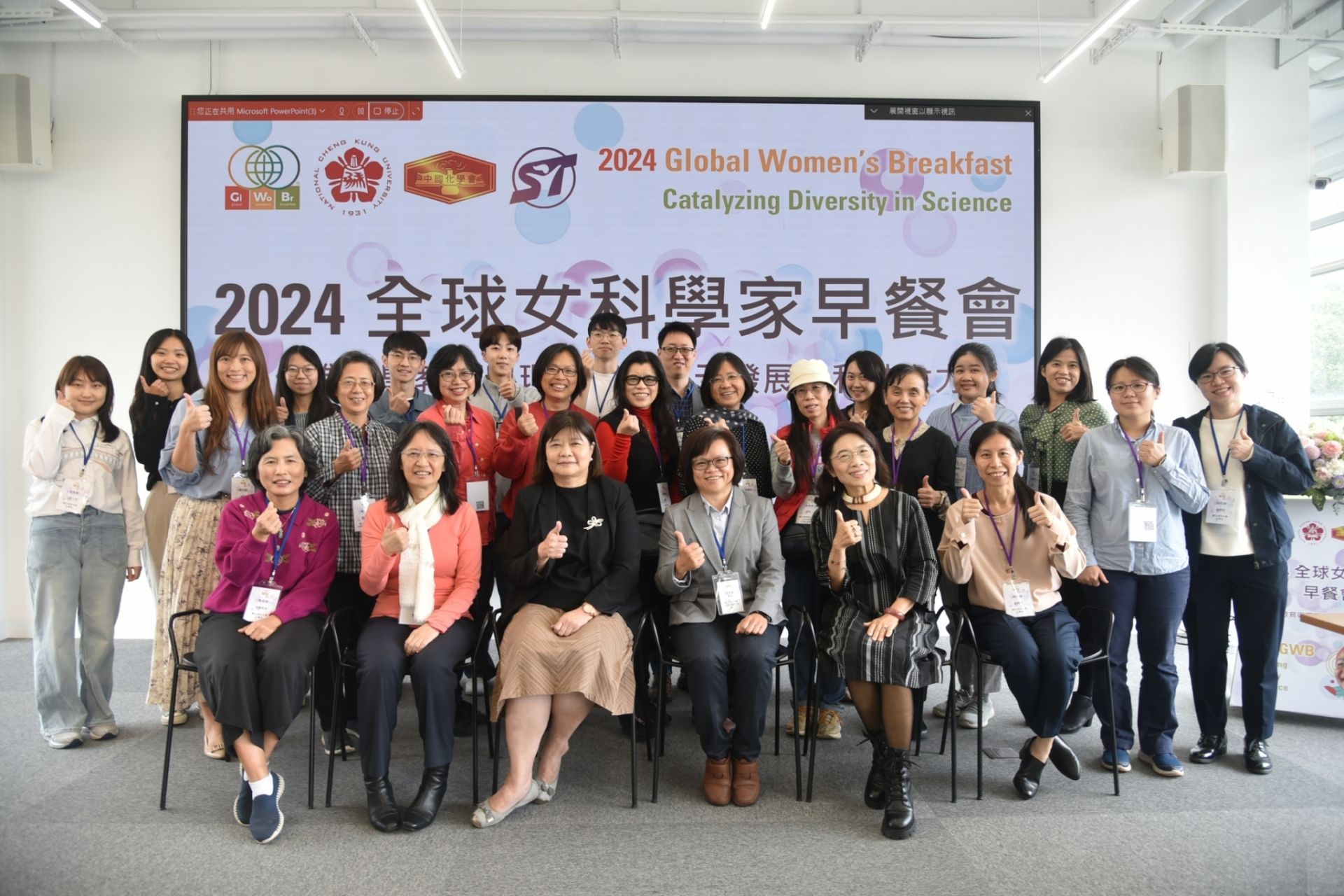SDG5
The 4th Women in Tech Conference of 2024, themed "For Love and Dreams: Painting the Diverse Facets of Technology Together"
The 4th Women in Tech Conference of 2024 relocated to National Cheng Kung University (NCKU) on the 9th, inviting academic and industry leaders to share experiences on promoting gender equality, cultivating female leaders, and creating inclusive and collaborative workplace environments. The conference also explored the balance between work, family, and public welfare for women. President Ing-wen Tsai, through a video speech, thanked the Taiwan Women in Tech Association, encouraging more young women to enter the field of technology. She expressed hope for more outstanding female tech talents to exert influence in various fields, enhancing Taiwan's international competitiveness and contributing to a more diverse future for the country.
The Women in Tech Conference was jointly organized by the Taiwan Women in Tech Association, the Chinese Institute of Engineers, the Optical Society of Taiwan, and National Yang Ming Chiao Tung University. The event was opened with speeches by Chairperson Hong Jui-hua of the Taiwan Women in Tech Association and Chairperson Yang Cheng-hung of the Chinese Institute of Engineers, followed by a video speech from President Tsai. Chairman Cheng-chung Wu of the National Science and Technology Council also attended the opening ceremony, underscoring the contributions of women in technology to the nation and society.
President Tsai's speech thanked the Taiwan Women in Tech Association for organizing the annual Women in Tech Conference, which connects female tech professionals domestically and internationally, making Taiwan's tech talents more visible and inspiring more young women to join the field. She highlighted Taiwan's crucial role in the global high-tech supply chain, especially evident in the challenges posed by the recent pandemic. She emphasized the importance of the diversity, inclusivity, and innovation spirit of female tech professionals in Taiwan's continued advancement. The government has been striving to create an equal and friendly workplace environment, encouraging more women to enter or return to the workforce. For example, parental leave subsidies have been increased from 60% to 80%, with relaxed eligibility criteria to allow both parents to apply for subsidies.
President Tsai mentioned that Taiwan's performance in gender equality has ranked among the top in Asia in recent years, thanks to joint efforts from the government and private sectors. She anticipated that the development of smart digital technology would bring new job, lifestyle, and business models, and hoped to see more influential female tech talents in various fields. She thanked all the female tech professionals present for their professionalism and passion in enhancing Taiwan's international competitiveness and shaping a more diverse future for the nation.
Chairperson Hong expressed gratitude to President Tsai for her support of the conference and thanked Professor Huey-Jen Su, former president of NCKU, for her assistance. Given that the social atmosphere no longer restricts to male or female roles, this year's theme is "Diversity, Inclusion, Collaboration, and Equity (DICE)." Respect for individuals' gender choices is emphasized, aiming to see professionalism, equity, diversity, and inclusivity (EDI) in the workplace. The conference aimed to share feasible solutions through academic and industry collaboration and brainstorming sessions.
Chairman Yang pointed out that the Chinese Institute of Engineers is committed to encouraging the participation of engineers of different genders, respecting individual differences, and establishing a diverse and inclusive engineering environment where everyone can work without fear. He hoped that male friends in the technology field would support the development of women in technology through practical actions, fostering continued discussion and concrete implementation.
The fourth conference, themed "He for She," invited male industry leaders, including President Ting-lu Yu of Applied Materials Taiwan, founder and honorary chairman of Amkor Technology, and honorary chairman of Sino-American Silicon Crystal, Ming-guang Lu, and Chih-yi Wu, senior expert of the Industrial Technology Research Institute and executive director of the Taiwan Semiconductor Industry Association, to discuss how men and women can work together to achieve a better future in the technology field.
President Ting-lu Yu pointed out that the semiconductor industry has a huge demand for talent and urgently needs a large number of new talents, including female tech professionals. However, challenges in attracting female tech professionals include gender stereotypes, promotion opportunities, career adaptability, networking, and unconscious biases, which companies need to address through policies and actions. Honorary Chairman Ming-guang Lu believed that if women want to balance work and family, especially in leadership positions, they will inevitably face many trade-offs and sacrifices, and male supervisors need to be more considerate of women's situations. Executive Director Chih-yi Wu pointed out that attracting women to the technology sector requires support on multiple levels, including nurturing an interest in science from an early age, creating promising career development prospects, and providing family support.
In the afternoon, six female leaders from academia and industry, including former President Huey-Jen Su of NCKU, Vice President Xiu-fen Tsai of National Sun Yat-sen University, Deputy Chairperson Yi-chuang Chen of the National Science and Technology Council, Chief Investment Officer Shu-fen Cheng of Cathay Holdings, Human Resources Director Qi-Xuan Song of MSD Taiwan, and Lawyer Lu Guang of Lee and Li Attorneys-at-Law, shared their experiences in creating sustainable, inclusive, and collaborative workplace environments and exploring the balance between work, family, and public welfare.
The conference concluded with a dialogue on dreams and practices, where female tech professionals shared challenges and authentic stories faced in the workplace and life, including balancing work and private life, the impact of flexible working hours, survival rules in the workplace, the influence of gender imbalances in the workplace, and the construction of a friendly gender-equal environment.
Another highlight of the conference was the "Little Science Camp," which offered science-themed activities provided by the Science Education Center of the College of Science at NCKU, aiming to resonate and generate more responses from female tech professionals.
The Taiwan Women in Tech Association was established in 2011 with the aim of encouraging and fostering women's participation in the field of technology, promoting and enhancing their growth in the professional field of technology, and establishing communication, experience sharing, and mutual support networks among female tech professionals. It seeks to establish connections and exchanges with relevant international fields and organizations. In 2021, the association held its inaugural Women in Tech Conference, exploring how to reverse the phenomenon of women's workplace rights being easily overlooked in academia and industry. In 2022, the second Women in Tech Conference delved into how the industry can construct female-friendly workplaces. In 2023, the third Women in Tech Conference invited domestic academic, social, and women-related associations from the UK, US, and South Korea to share experiences in promoting workplace equality online.
The Women in Tech Conference was jointly organized by the Taiwan Women in Tech Association, the Chinese Institute of Engineers, the Optical Society of Taiwan, and National Yang Ming Chiao Tung University. The event was opened with speeches by Chairperson Hong Jui-hua of the Taiwan Women in Tech Association and Chairperson Yang Cheng-hung of the Chinese Institute of Engineers, followed by a video speech from President Tsai. Chairman Cheng-chung Wu of the National Science and Technology Council also attended the opening ceremony, underscoring the contributions of women in technology to the nation and society.
President Tsai's speech thanked the Taiwan Women in Tech Association for organizing the annual Women in Tech Conference, which connects female tech professionals domestically and internationally, making Taiwan's tech talents more visible and inspiring more young women to join the field. She highlighted Taiwan's crucial role in the global high-tech supply chain, especially evident in the challenges posed by the recent pandemic. She emphasized the importance of the diversity, inclusivity, and innovation spirit of female tech professionals in Taiwan's continued advancement. The government has been striving to create an equal and friendly workplace environment, encouraging more women to enter or return to the workforce. For example, parental leave subsidies have been increased from 60% to 80%, with relaxed eligibility criteria to allow both parents to apply for subsidies.
President Tsai mentioned that Taiwan's performance in gender equality has ranked among the top in Asia in recent years, thanks to joint efforts from the government and private sectors. She anticipated that the development of smart digital technology would bring new job, lifestyle, and business models, and hoped to see more influential female tech talents in various fields. She thanked all the female tech professionals present for their professionalism and passion in enhancing Taiwan's international competitiveness and shaping a more diverse future for the nation.
Chairperson Hong expressed gratitude to President Tsai for her support of the conference and thanked Professor Huey-Jen Su, former president of NCKU, for her assistance. Given that the social atmosphere no longer restricts to male or female roles, this year's theme is "Diversity, Inclusion, Collaboration, and Equity (DICE)." Respect for individuals' gender choices is emphasized, aiming to see professionalism, equity, diversity, and inclusivity (EDI) in the workplace. The conference aimed to share feasible solutions through academic and industry collaboration and brainstorming sessions.
Chairman Yang pointed out that the Chinese Institute of Engineers is committed to encouraging the participation of engineers of different genders, respecting individual differences, and establishing a diverse and inclusive engineering environment where everyone can work without fear. He hoped that male friends in the technology field would support the development of women in technology through practical actions, fostering continued discussion and concrete implementation.
The fourth conference, themed "He for She," invited male industry leaders, including President Ting-lu Yu of Applied Materials Taiwan, founder and honorary chairman of Amkor Technology, and honorary chairman of Sino-American Silicon Crystal, Ming-guang Lu, and Chih-yi Wu, senior expert of the Industrial Technology Research Institute and executive director of the Taiwan Semiconductor Industry Association, to discuss how men and women can work together to achieve a better future in the technology field.
President Ting-lu Yu pointed out that the semiconductor industry has a huge demand for talent and urgently needs a large number of new talents, including female tech professionals. However, challenges in attracting female tech professionals include gender stereotypes, promotion opportunities, career adaptability, networking, and unconscious biases, which companies need to address through policies and actions. Honorary Chairman Ming-guang Lu believed that if women want to balance work and family, especially in leadership positions, they will inevitably face many trade-offs and sacrifices, and male supervisors need to be more considerate of women's situations. Executive Director Chih-yi Wu pointed out that attracting women to the technology sector requires support on multiple levels, including nurturing an interest in science from an early age, creating promising career development prospects, and providing family support.
In the afternoon, six female leaders from academia and industry, including former President Huey-Jen Su of NCKU, Vice President Xiu-fen Tsai of National Sun Yat-sen University, Deputy Chairperson Yi-chuang Chen of the National Science and Technology Council, Chief Investment Officer Shu-fen Cheng of Cathay Holdings, Human Resources Director Qi-Xuan Song of MSD Taiwan, and Lawyer Lu Guang of Lee and Li Attorneys-at-Law, shared their experiences in creating sustainable, inclusive, and collaborative workplace environments and exploring the balance between work, family, and public welfare.
The conference concluded with a dialogue on dreams and practices, where female tech professionals shared challenges and authentic stories faced in the workplace and life, including balancing work and private life, the impact of flexible working hours, survival rules in the workplace, the influence of gender imbalances in the workplace, and the construction of a friendly gender-equal environment.
Another highlight of the conference was the "Little Science Camp," which offered science-themed activities provided by the Science Education Center of the College of Science at NCKU, aiming to resonate and generate more responses from female tech professionals.
The Taiwan Women in Tech Association was established in 2011 with the aim of encouraging and fostering women's participation in the field of technology, promoting and enhancing their growth in the professional field of technology, and establishing communication, experience sharing, and mutual support networks among female tech professionals. It seeks to establish connections and exchanges with relevant international fields and organizations. In 2021, the association held its inaugural Women in Tech Conference, exploring how to reverse the phenomenon of women's workplace rights being easily overlooked in academia and industry. In 2022, the second Women in Tech Conference delved into how the industry can construct female-friendly workplaces. In 2023, the third Women in Tech Conference invited domestic academic, social, and women-related associations from the UK, US, and South Korea to share experiences in promoting workplace equality online.
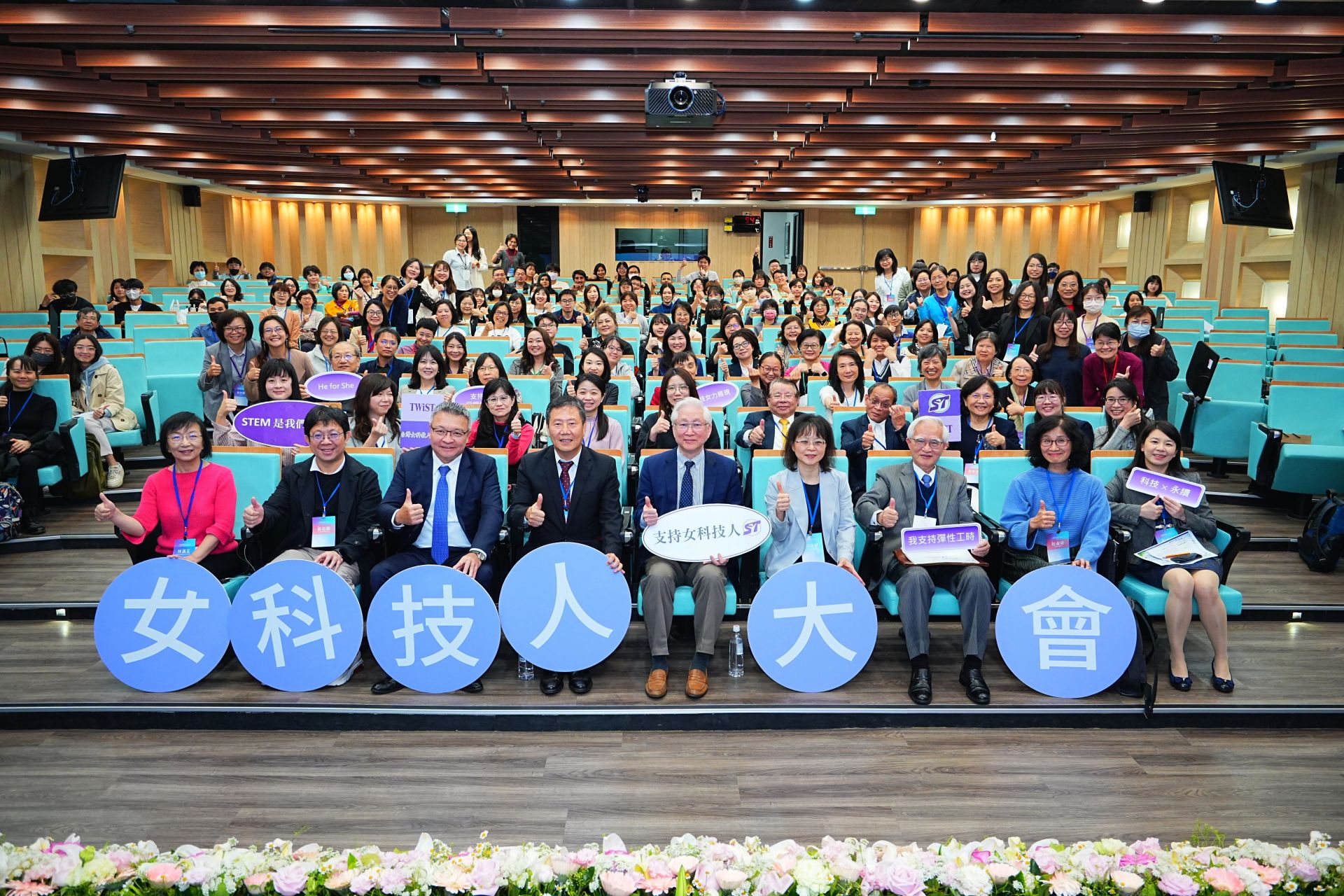
Participants in the Fourth Women in Technology Conference were numerous.
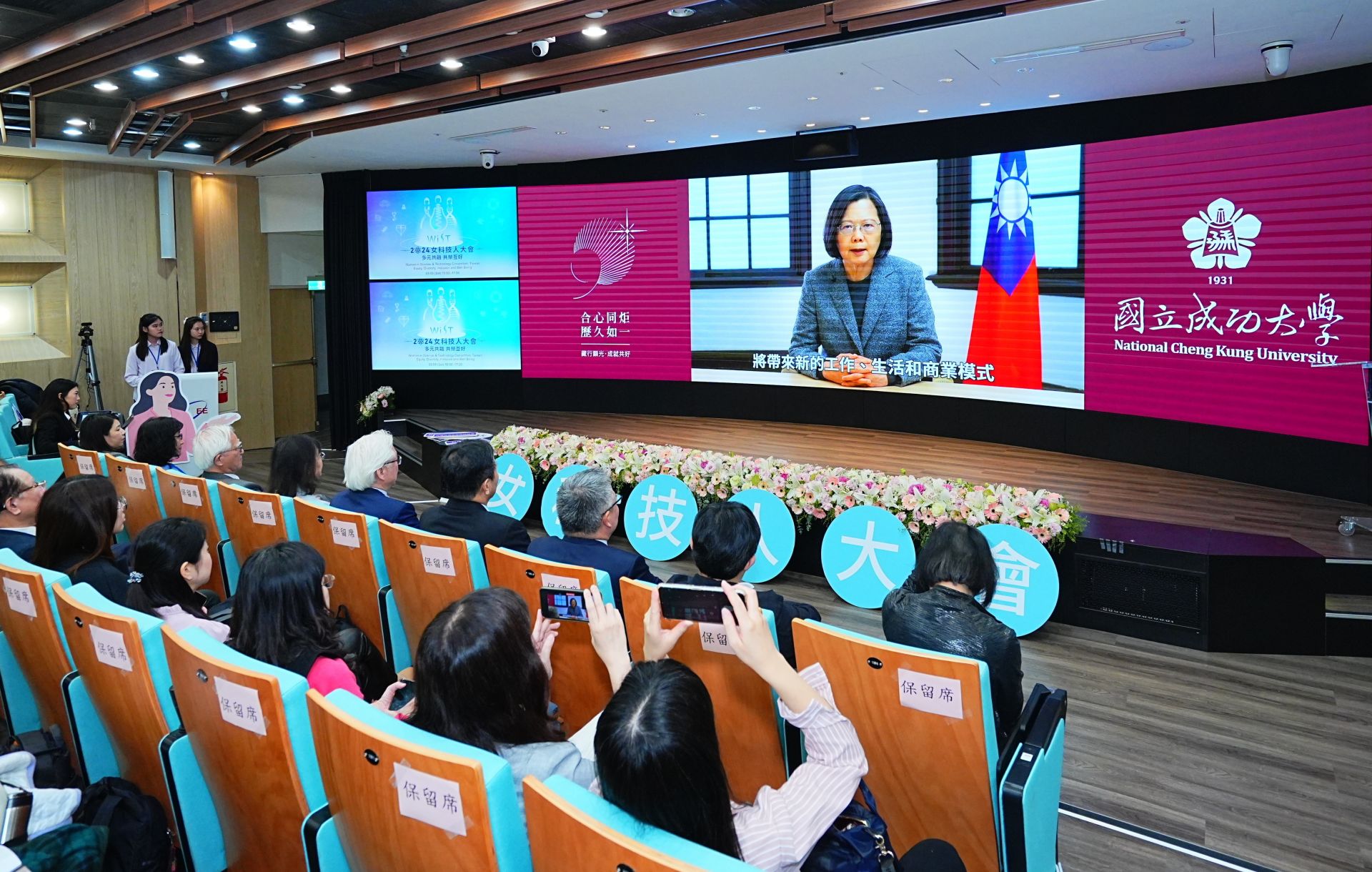
President Ing-wen Tsai's recorded video message.
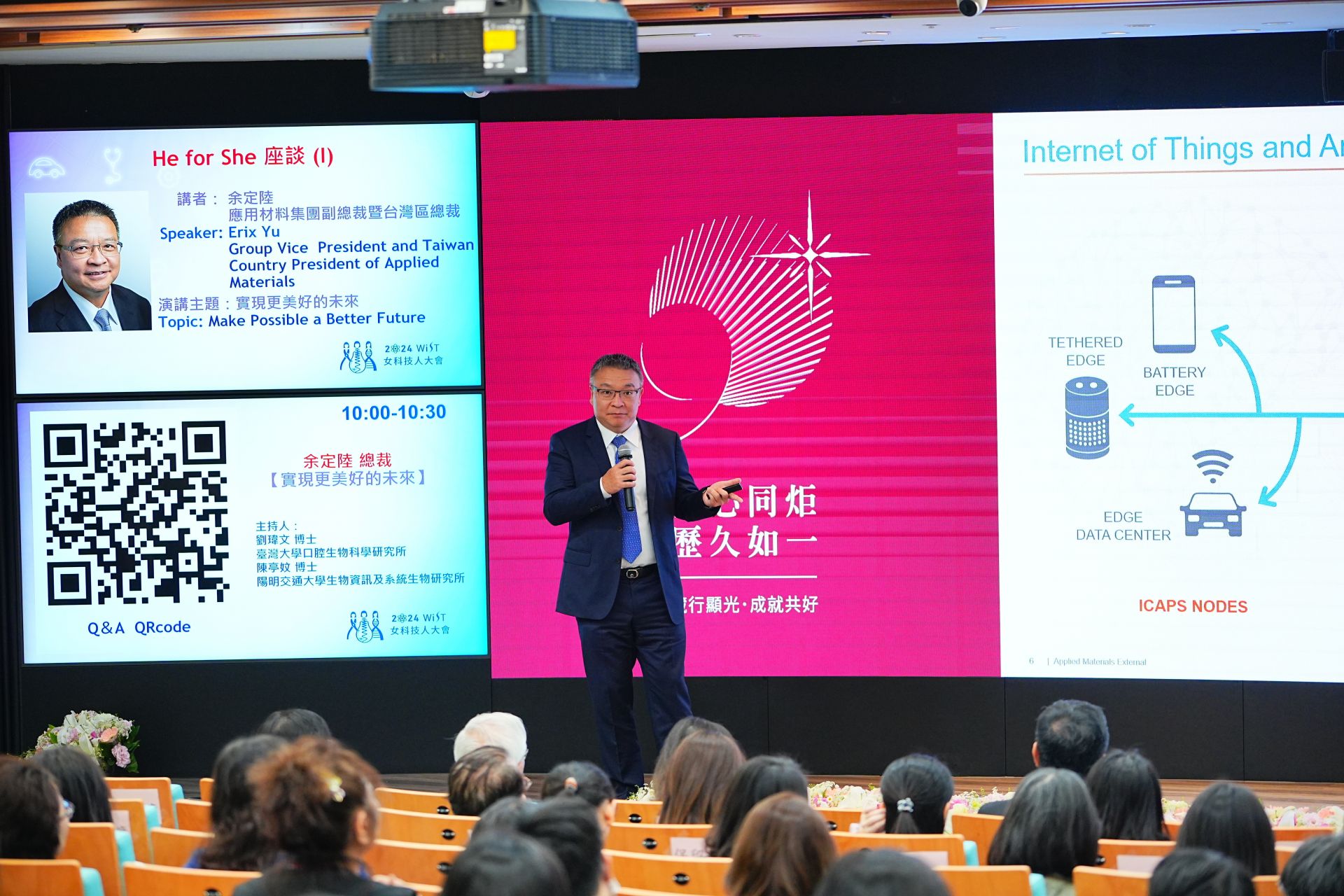
Mr. Ding-lu Yu, President of Applied Materials Taiwan, hopes to see more women in the semiconductor industry.
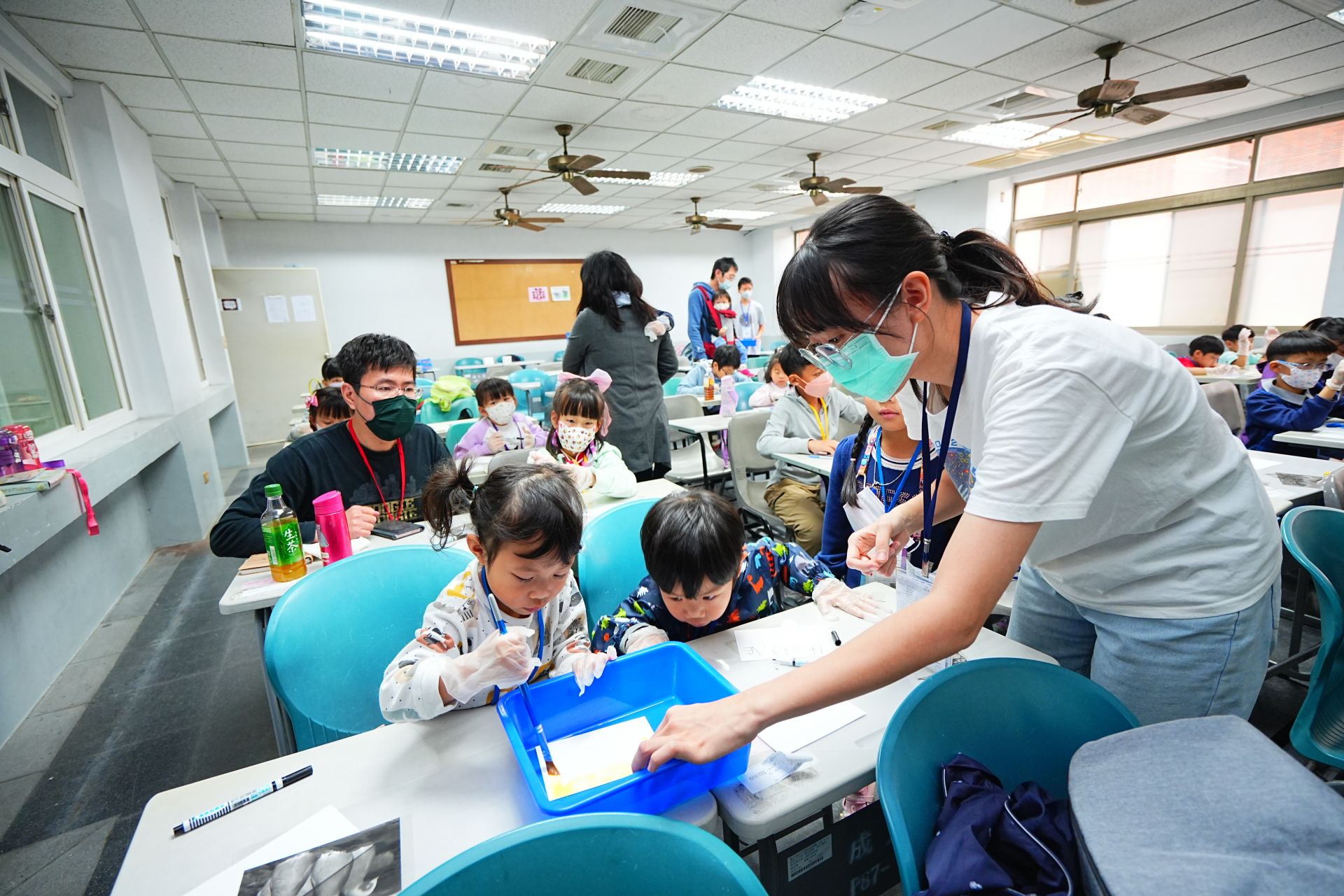
The Women in Technology Conference also hosts a Little Science Camp concurrently.
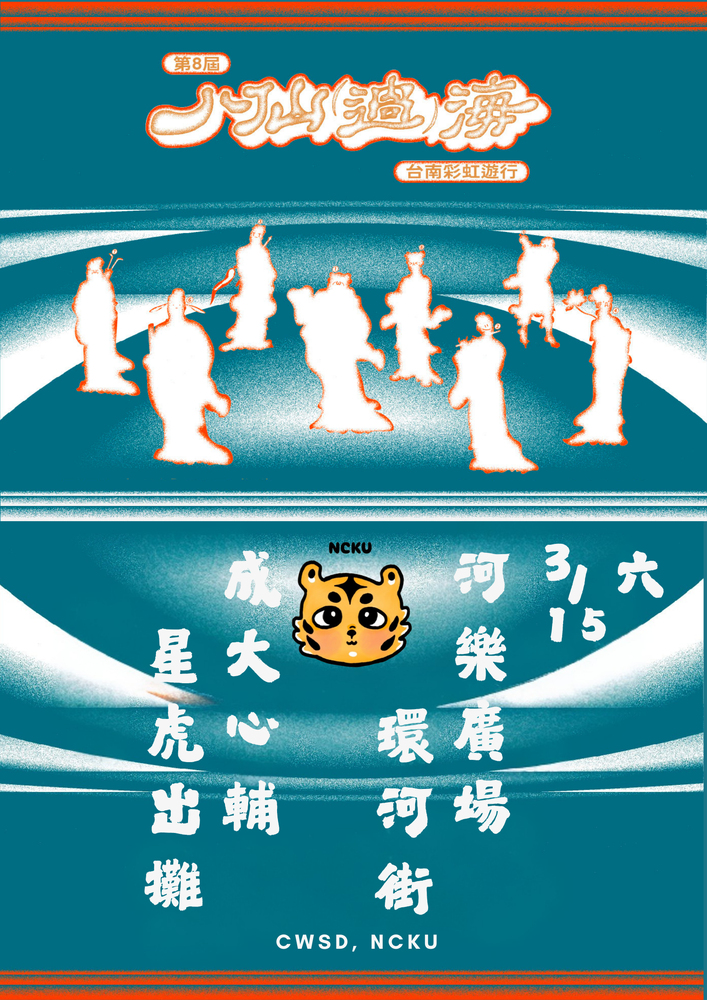
SDG5NCKU joined the Tainan Rainbow Parade for the first time on March 15, promoting gender equality
View more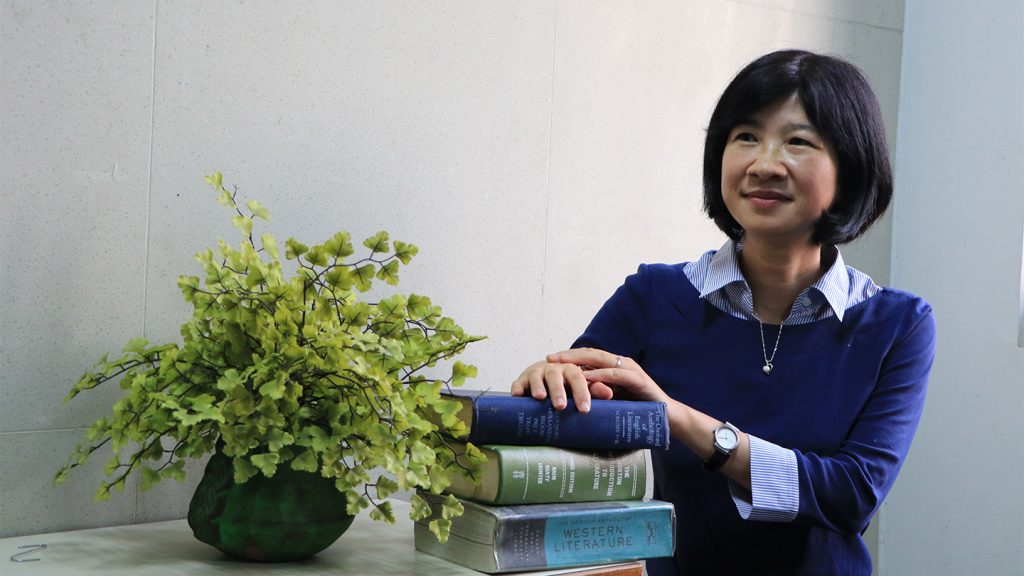
SDG5Woman Power Takes off at NCKU with Cross-national WUN Project: “Marriage Migrants in Asia”
View more